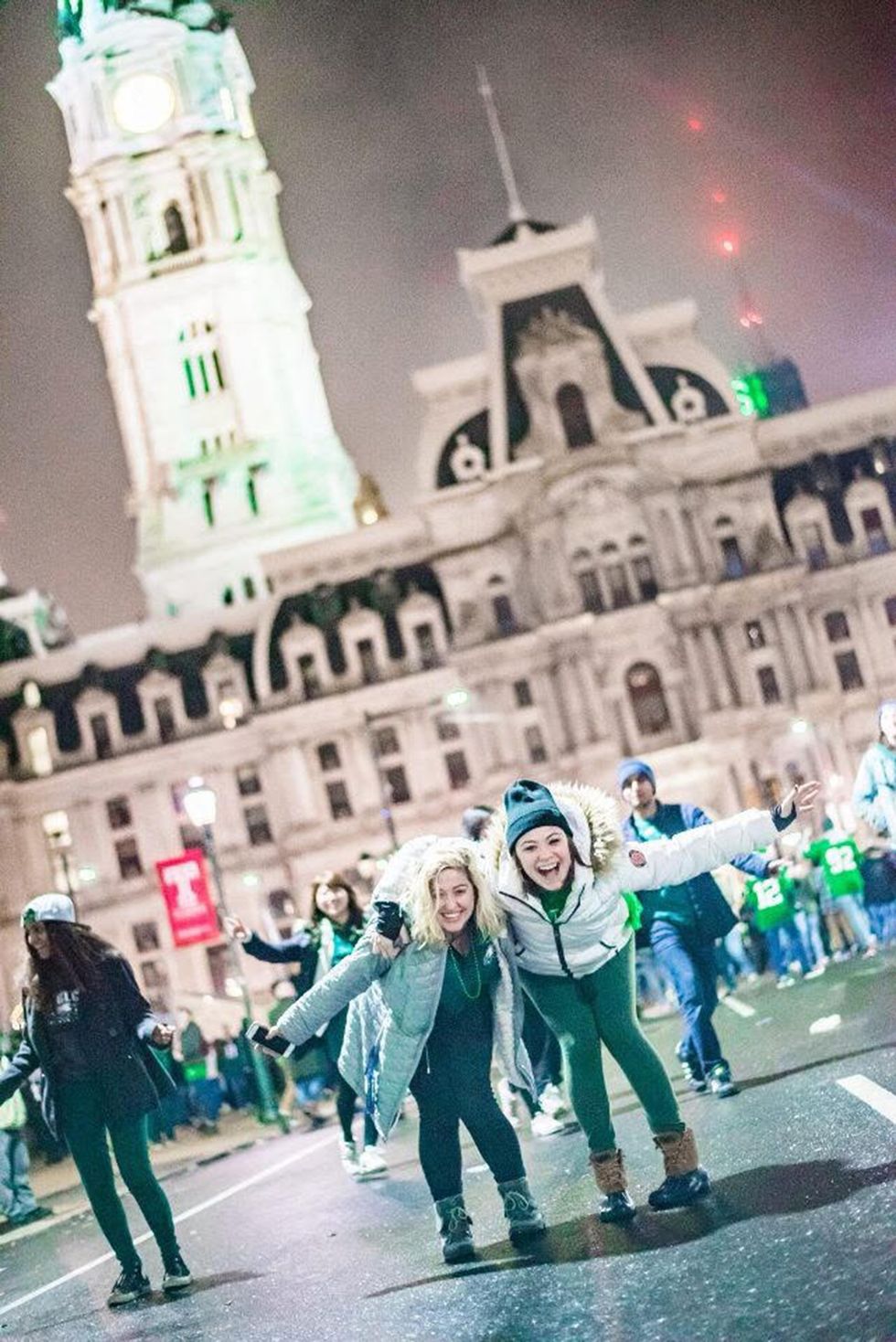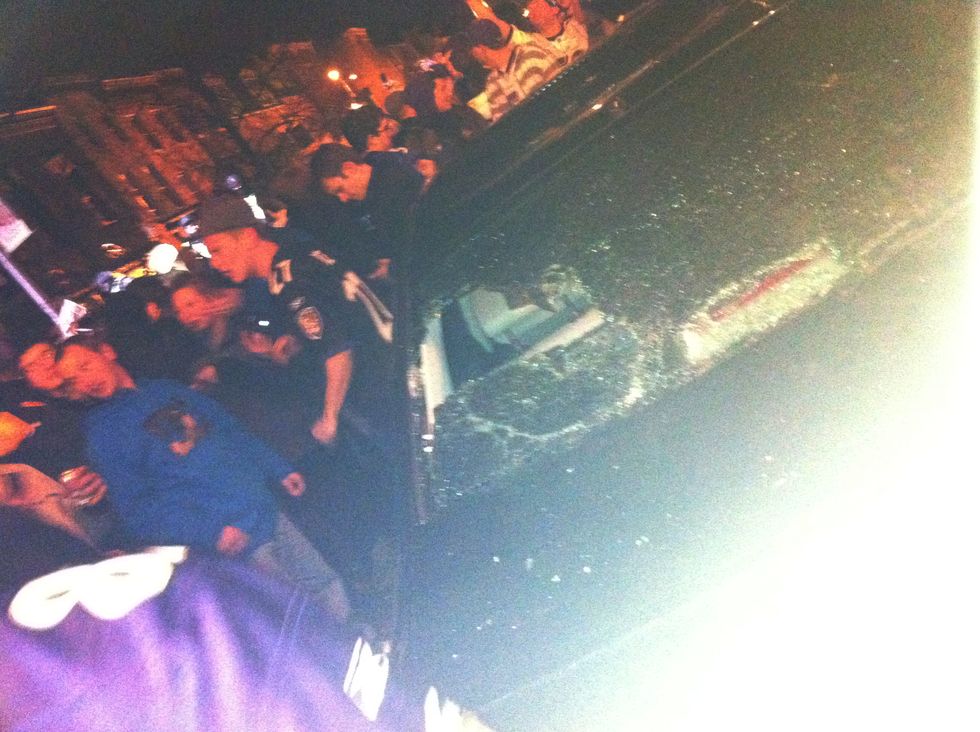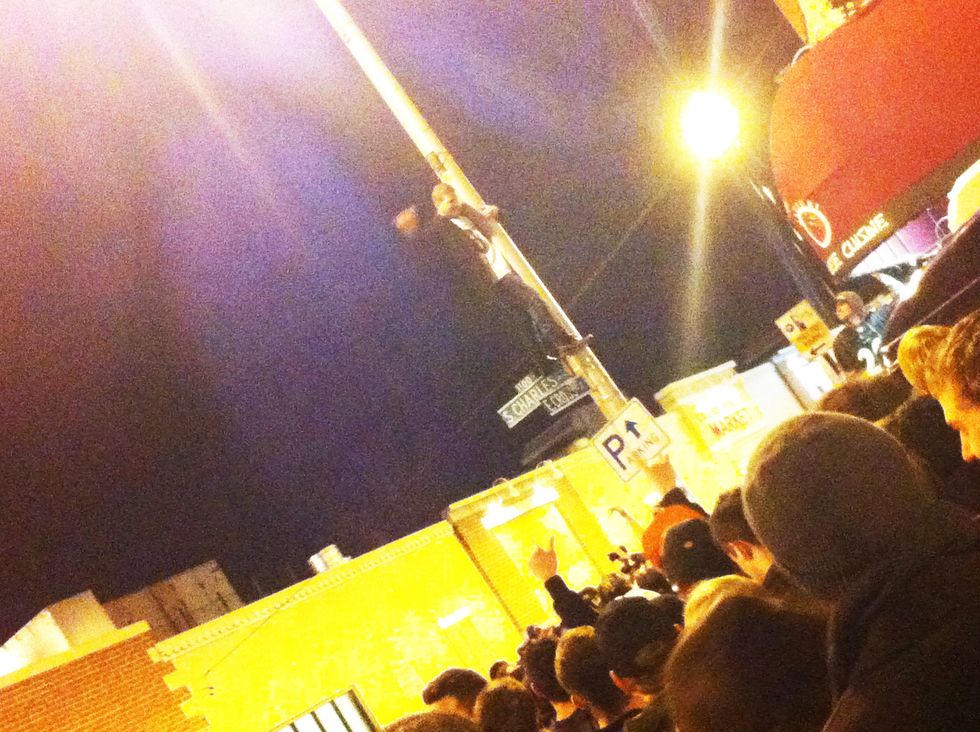As humans, we feel a need to belong.
We can’t help but to want to be a part of something bigger than ourselves. A certain type of psychological warfare naturally comes out through adrenaline-pumping passions like sports. And its results are very interesting to say the least.
With the recent first-ever Super Bowl victory for the Philadelphia Eagles, I’ve seen numerous social media posts from people talking about the absurdity of Philly fans “destroying their city” and “burning it to the ground.” Well it turns out, most major cities that make a groundbreaking win celebrate by rioting—and there is psychological reasoning behind it.
According to The Washington Post, psychologists and sociologists found a mixture of factors correlating sports fans and violent behaviors including, “intense fan identification with a team, behavioral changes when people become part of a mob and strong psychological and physiological responses when your team wins or loses.”
We’ve seen this happen time and time again yet act like it’s something new. Right after a Super Bowl or World Series win, the city streets are filled with fans in a packed, shoulder-to-shoulder crowd, and people rage and riot with excitement while some become destructive. Jumping on top of cars, smashing things, climbing light posts, flipping vehicles, setting fires—but not to internationally hurt anyone—just to express their victorious moment. It’s pretty absurd.
The above article explains the science behind it. “The effect manifests itself physically. Fans’ testosterone levels often increase after their team wins and decrease when they lose, according to some studies.”
“There’s the contagion theory. We know people do things in crowds they would not do alone. They think they’re anonymous.”
And this is nothing new. For many years fans have been performing these same crazy acts of violence to celebrate their biggest win of the year. And a crowd full of alcohol and adrenaline-fueled alpha males always intensifies the situation.
In 1999 when the Denver Broncos defeated the Atlanta Falcons in Super Bowl XXXIII it caused more than $160,000 worth of damages to the city from drunk fans rioting. In 2009 when the Pittsburgh Steelers won Super Bowl XLIII they flipped cars, lit fires, vandalized and caused more than $150,000 in damages to the city. In 2013 when the Boston Red Sox won the World Series fans did the same thing. So did the fans of the Chicago Cubs in 2016 when they won the World Series in which they haven't seen a victory since 1908. The list goes on and on.
Even in 1982 when the San Francisco 49ers won Super Bowl XVI the fans rioted. According to an article in The New York Times from 1982, “About 70 people were arrested, most of them for drunkenness, some for assaulting the police and resisting arrest. All told, about 100 injuries were reported before officers were able to clear the streets.”
“Someone started a bonfire at an intersection, and another atop a car, neither causing notable damage. But by 10 P.M., riot police moved in with helmets, face-guards and night sticks, and there were several clashes with the crowds.”
I myself was in the middle of celebratory chaos in my hometown in 2013 when the Baltimore Ravens won Super Bowl XLVII. It was exhilarating yet baffling at the same time. In the middle of Charles Street along the main strip of the Federal Hill neighborhood, a big bar scene in the city, chaos erupted. Cars parked along the street were smashed from people jumping on top of them, causing shattered windows.
Guys were climbing light poles, running across car hoods, lighting fires, running around the streets like lunatics—all those same things. There is a wondrous mix of emotions that comes with this type of victory. Yes, we see stupidity as people put their lives at risk and leave a destructive mess for their own community members to clean up, but there seems to be a thrill behind it all.
The thrill to feel a togetherness, a feeling of being invincible, on top of the world, that nothing can stop you. It's pretty dangerous and stupid, but it seems to fulfill this natural desire to be a part of something bigger than yourself.
In a weird way, this phenomenon is like a tradition. Especially for an “underdog” team in a high-volume, urban, metropolitan area.
So don’t only talk trash about Philly for destroying their city, because it’s been happening in cities all across the world for decades now. And of course a rowdy city like Philly's first-EVER Super Bowl win is going to be insane. How could we expect any less?
It just sucks for the people who have to clean it all up.






































